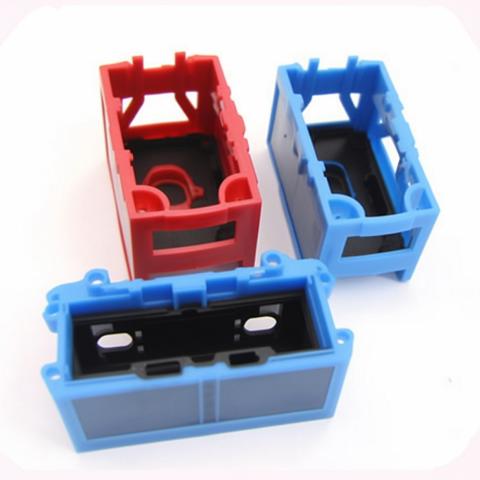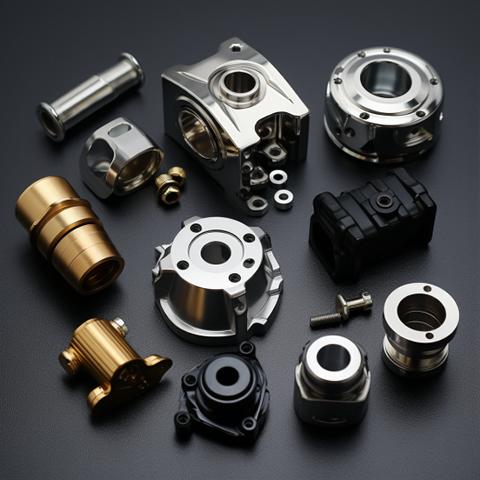Navigating the World of Aluminum Alloys
In the realm of aluminum alloys, 6061 stands as a stalwart with its commendable blend of strength, weldability, and corrosion resistance. However, there are instances when finding an equivalent becomes imperative, driven by specific project requirements, cost considerations, and the need for alternative performance characteristics. In this comprehensive guide, we delve into the intricacies of identifying the equivalent of 6061 aluminum and explore its application in various industries.
Properties of 6061 Aluminum
6061 aluminum sometimes we call aircraft grade aluminum 6061, revered for its composition and mechanical properties, has found its way into diverse applications, ranging from aerospace components to structural elements in construction. Its robustness and versatility make it a popular choice, yet understanding its properties is crucial before seeking equivalents.
6061 is an aluminum-magnesium-silicon alloy with excellent corrosion resistance and high strength. It boasts superior weldability and machinability, making it a go-to material for projects demanding precision and durability. Common applications include aircraft components, marine fittings, and structural components in construction.

6061 aluminum equivalent
When considering alternatives to 6061 aluminum, several alloys come into play, each with its own set of properties and applications. Here are a few notable equivalents that are commonly used in various industries:
- 6063 Aluminum:
- Composition: Similar to 6061, 6063 aluminum alloy is an aluminum-magnesium-silicon alloy.
- Properties: While not as strong as 6061, 6063 offers excellent formability and is often chosen for applications requiring intricate shapes and profiles.
- Applications: Widely used in architectural and decorative applications, 6063 is favored for its aesthetic appeal and ease of fabrication.
- 7075 Aluminum:
- Composition: An aluminum-zinc alloy with traces of copper, 7075 aluminum alloy is known for its high strength.
- Properties: Significantly stronger than 6061, 7075 some times we called aircraft grade aluminum 7075 which is often used in aerospace applications where strength and lightweight properties are critical.
- Applications: Aircraft fittings, gears, and high-stress structural components benefit from the strength of 7075 aluminum.
- 2024 Aluminum:
- Composition: An aluminum-copper alloy with traces of manganese, 2024 is recognized for its high strength-to-weight ratio.
- Properties: While not as corrosion-resistant as 6061, 2024 offers exceptional machinability and is often selected for applications requiring precision machining.
- Applications: Commonly used in aerospace applications, including aircraft fuselage and wing components.
- 6082 Aluminum:
- Composition: An aluminum-silicon alloy with good formability and weldability.
- Properties: Similar to 6061, 6082 provides good corrosion resistance and is suitable for structural applications.
- Applications: Used in construction, transportation, and general engineering where a combination of strength and formability is required.
- 6066 Aluminum:
- Composition: An aluminum-magnesium-silicon alloy with improved strength and corrosion resistance compared to 6061.
- Properties: Offers enhanced performance in terms of tensile strength and toughness.
- Applications: Suitable for applications in the automotive industry, such as chassis components and structural parts.
It’s important to note that the choice of an equivalent alloy depends on the specific requirements of the project, considering factors such as strength, formability, corrosion resistance, and cost. Consulting with experts, like those at GC Precision China die casting company, can provide valuable insights and assistance in selecting the most suitable aluminum alloy for a given application.
Need for Equivalents
The quest for equivalents arises from the dynamic nature of projects and the necessity to meet specific criteria. Whether dictated by project requirements, budget constraints, or nuanced performance demands, the search for 6061 equivalents is a practical consideration in various industries.
Identifying Equivalent Aluminum Alloys
Comparing properties is the first step in identifying suitable equivalents for 6061 aluminum. Strength, weldability, corrosion resistance, and machinability are key factors in the selection process. Among the common alternatives, 6063 aluminum presents itself as a formidable contender, balancing strength and formability. For those requiring high strength, 7075 aluminum is a robust option, while 2024 aluminum offers excellent machinability.
Application-Specific Considerations
Different industries have unique demands, and understanding how equivalents fare in specific applications is crucial. In aerospace, where lightweight yet durable materials are paramount, the 6061 equivalent should align with stringent performance standards. In the automotive sector, considerations may include formability and corrosion resistance. Construction projects often demand alloys with superior strength and corrosion resistance for structural integrity.
Selection Criteria
Choosing the right aluminum alloy involves a meticulous evaluation of project requirements, cost-effectiveness, and the availability of materials. A judicious selection process ensures that the chosen equivalent not only meets performance expectations but also aligns with budgetary constraints and logistical considerations.
Case Studies
Examining successful substitutions provides valuable insights. Industries worldwide have successfully incorporated 6061 equivalents, demonstrating the adaptability and performance of alternative alloys. In such endeavors, professional expertise plays a pivotal role, ensuring seamless transitions and optimal outcomes.
Challenges in Finding Equivalents
While alternatives exist, challenges may arise due to the limitations of certain alloys. It’s crucial to recognize potential compromises in performance and address them through careful analysis and consultation with industry experts.
Conclusion
In conclusion, the journey to find the equivalent of 6061 aluminum involves a nuanced understanding of project requirements, thorough research, and a strategic selection process. GC Precision China die casting company, with its commitment to quality and expertise in aluminum alloys, stands as a reliable partner in navigating this complex landscape. As industries evolve, so too does the quest for aluminum alloys that meet the ever-changing demands of modern engineering.
Welcome to GC Precision Mould, your premier China die casting manufacturer and China Mold Maker. We specialize in producing high-quality plastic molds, die casting molds, and a wide range of die cast parts from materials such as aluminum, zinc, and magnesium.
At GC Precision Mould, we are dedicated to providing our clients with the best possible aluminum die casting and other casting products and services. Our team of experienced engineers and technicians use the latest technology and techniques to ensure that every part we produce meets the highest standards of quality and accuracy.
Our products are widely used in a variety of industries, including automotive, consumer electronics, medical, and industrial equipment. We work closely with our clients to understand their specific needs and develop custom solutions that meet their unique requirements.
Whether you need a single plastic mold or a complete die casting production line, we have the expertise and resources to deliver exceptional results. Contact us today to learn more about our services and how we can help you achieve your manufacturing goals.
If you have a project that needs Die casting China for your die casting project or mould suppliers to make injection molding products, contact us to get the best price now.
